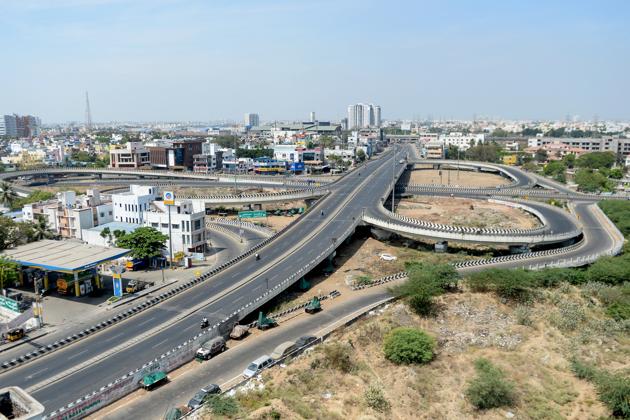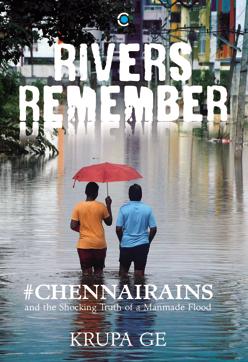Lockdown Diaries: The moral importance of frugality by Krupa Ge
Events have forced individuals to look inward and appreciate gentler ways of being
Writers are uniquely placed to give life advice to the urban salaried class as this lockdown plays out across India. It’s because most writers, especially those of us who freelance or have day jobs, which too require us to work from home, are no strangers to social distancing. It’s what our lives are made of for most parts of the year. My days usually flow seamlessly, from work to life... I am always living and always working. Available at once to everyone and to no one in particular.

As I see more of my friends post their days and dilemmas on social media, I recognise the stages they are in. When a loved one said she’d entered the “pyjama” phase, I said, “Welcome to my life”. One of the great advantages of working from home is the glorious feeling of typing away potentially life-altering, explosive exposes, or lyrical prose that probes the human condition, all the while dressed in the most comfortable pair of clothes you own. For me, it’s these loose, export-reject t-shirts (God bless Tiruppur!) that let me breathe. They have the most bizarre captions; the one I am wearing as I type says, “Outdoor Adventure… Buffalo DNM… One With One Self”. My pyjamas allow me to sit in the padmasana.
There is no one way to live and work from the same space. The point is that you have the freedom to do what you want. To wake up a bit late or early. To make your own meal or order in. To clean or not. To wash up or not. The one thing those of us who work from home do know is to get the job done. No matter what -- especially writers who have no one else, apart from their editors, if they have a book deal already in place, asking them how work is going. And to work in the house, taking breaks to cook or clean up. It is a skill worth acquiring that takes a while to acquire.

Last year, around this time, believe it or not, I was more socially distant than I have been during this lockdown. I was working on the final draft of Rivers Remember. There were days when my spouse headed out to work and came back home to find me in the same spot. I’d take a break to eat lunch, and then later in the night dinner with him. After each meal, it was back to the sofa or the floor in the living room, my legs stretched out and all my research spread around on the floor like an art installation. No one was allowed to rearrange, or clean the area. Each day, during those weeks, was the same. There were others when I didn’t see the outside world at all.
The other day, while checking in on a friend, I joked that normally I live my life like I am on quarantine. This lockdown, though, has given me an inexplicable urge to change my days. And by the time it is over, it might have permanently transformed how I work and live.
The fact that I am not allowed to go out is weighing on my mind, constantly. And it plays out in different ways. Sometimes, I open the windows in the room facing the road in our home and watch… for some signs of human activity. I volunteer to go and pick up groceries, so I can see the world outside. I take longer routes to reach the nearby store…
I was out this Sunday to buy vegetables and household supplies. The roads had been hollowed out of humans, though the supermarket was busy. The sky was that Chennai-summer blue, unblemished; not even stray clouds. On either side of the streets, trees were making a mockery of the grimness. Bursts of kondrai and bougainvillea in brilliant colours carpeted the roads and walls as a generous breeze sent them shivering. On an arterial road, the traffic was so low that people who lived in a nearby building had tied a rope between two trees on the divider, and had hung out clothes to dry.

Every day, now, I walk up to the small green patch in my building and examine each tree. (I planted some mint sprigs the day of the lockdown and they’re slowly showing signs of life now.) In the evenings, after coffee and biscuits, I climb up to the terrace. The view isn’t great. I am boxed in by buildings that don’t allow my eyes to focus on anything that even comes close to being the horizon. There’s no scope for meditating there either. A monstrous glass reflects the setting sun in the most gawdy manner possible, blinding everything in its vicinity. It’s a bit stuffy and pigeons moan constantly from nearby, even as crows swoop down too close for comfort. But then again, our mango trees are loaded, and in the distance, I can hear a koel. Squirrels feast on the tiny guavas in the guava tree. Parrots sing in pairs, and high up in the sky, eagles glide gracefully. There’s no hum of engines, no sounds of construction that has haunted us for over a year now; no honking and no voices either. The sea breeze and a constantly-changing sky keep me company. And help calm my anxieties as well as the guilt and rage that come every day as I look at images of suffering and a déjà vu of past wrongs plays out on my timeline.
Five years ago, I witnessed a deadly flood. Last year, Chennai saw one of the worst droughts. I struggled to find and save water. This year, I am rationing food as shops shut down early, and the threat of supplies dwindling is looking increasingly real. All of these external events have forced me to look inward. They have taught me the moral importance of frugality. Of a gentler way of being. Of seeing. The world and myself. Of not taking for granted, the ‘normal’.
Krupa Ge is the author of Rivers Remember published by Westland/Context and the Editor-in-Chief of Silverscreen India. She’s currently working on her first novel.






